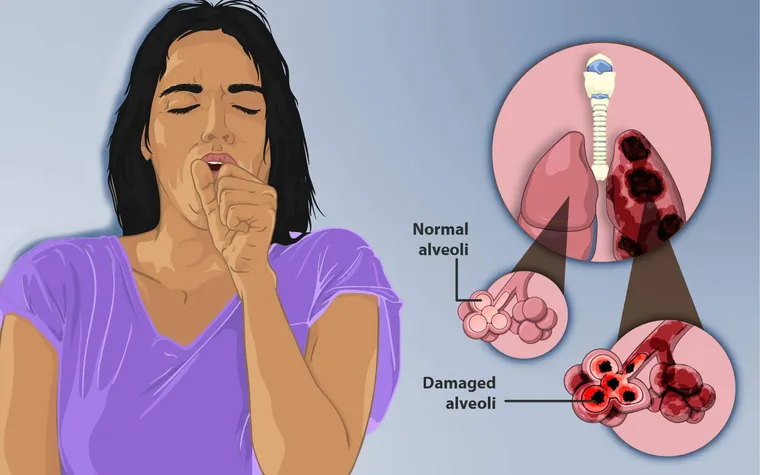Chronic Obstructive Pulmonary Disease (COPD) is a progressive lung condition that affects millions of people worldwide, making it difficult to breathe and perform everyday activities. Commonly caused by smoking or long-term exposure to harmful pollutants, COPD includes conditions like emphysema and chronic bronchitis. Although there is no cure, early diagnosis and proper treatment can significantly slow the disease’s progression and improve the patient’s quality of life. Managing symptoms through medication, therapy, and lifestyle changes is key to living well with COPD.
Effective COPD treatment focuses on reducing inflammation, relieving symptoms, and preventing complications such as infections and flare-ups. Treatment plans are tailored to each individual based on the severity of the condition and their lifestyle. Doctors often recommend a combination of medication, pulmonary rehabilitation, oxygen therapy, and lifestyle changes to manage COPD. With proper care and adherence to a treatment plan, many individuals with COPD can lead active and fulfilling lives despite their diagnosis.
Understanding COPD and Its Challenges
COPD gradually damages the lungs and narrows the airways, making it increasingly harder to breathe. Symptoms include chronic cough, shortness of breath, wheezing, and frequent respiratory infections. Over time, flare-ups may become more severe and frequent. The disease is most common in smokers and individuals exposed to dust, chemicals, or air pollution over long periods.
Because COPD is chronic and progressive, early detection and treatment are critical. Without intervention, the condition can lead to reduced lung function, fatigue, limited mobility, and other health complications. That’s why treatment strategies must be consistent, multifaceted, and personalized.
Medications for COPD
Several types of medications are used to help manage COPD:
- Bronchodilators: These drugs relax the muscles around the airways, making breathing easier. They can be short-acting (for quick relief) or long-acting (for daily control).
- Steroids: Inhaled or oral corticosteroids help reduce airway inflammation and may be prescribed during flare-ups.
- Combination Inhalers: These contain both bronchodilators and steroids, offering a two-pronged approach to symptom relief.
- Phosphodiesterase-4 Inhibitors: For severe COPD, these oral medications help reduce inflammation and relax airways.
- Antibiotics and Antivirals: Used during infections that can worsen COPD symptoms.
Pulmonary Rehabilitation
Pulmonary rehabilitation is a medically supervised program that helps improve the overall well-being of people with chronic respiratory problems. It includes:
- Exercise Training: Strengthens breathing muscles and improves endurance.
- Nutritional Counseling: Supports healthy eating habits to maintain energy.
- Education and Support: Teaches breathing techniques and how to manage symptoms.
Oxygen Therapy
As COPD progresses, oxygen levels in the blood may decrease. Oxygen therapy delivers supplemental oxygen through a mask or nasal cannula to help maintain healthy oxygen levels. It can be used continuously or during specific activities like sleeping or exercising. This therapy can improve sleep, alertness, and heart function for those with severe COPD.
Lifestyle Changes
Adopting healthy lifestyle habits plays a critical role in managing COPD:
- Quit Smoking: This is the most important step to slow disease progression.
- Avoid Pollutants: Stay away from dust, fumes, and secondhand smoke.
- Stay Active: Regular physical activity improves stamina and lung function.
- Vaccinations: Stay up to date on flu and pneumonia shots to prevent respiratory infections.
- Healthy Diet: Nutrient-rich foods support immune health and energy levels.
Conclusion
While COPD remains a serious and lifelong condition, advancements in treatment and self-care strategies have made it increasingly manageable. Through a combination of medication, therapy, lifestyle adjustments, and support, individuals with COPD can improve their breathing, boost their energy, and maintain their independence. Early intervention and consistent care are key to living well with COPD.

